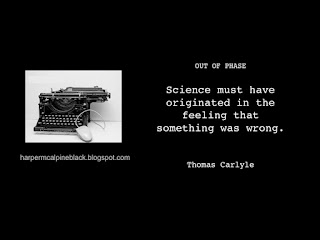Thomas Carlyle passed away in 1881. At that time, and over the decades preceding, he was deemed to be one of the most important social commentators and essayists of his era. He was widely read and generally acclaimed even though, against Victorian norms, he had lapsed from the Christian faith and held many controversial opinions. In the shadow of both French and then American revolutions the intellectual tide was moving towards more egalitarian and democratic ideas; Mr Carlyle was a staunch critic of democracy and, in his most enduringly controversial work, Occasional Discourse on the Negro Question published in 1849, appeared out of step on such questions as the abolition of slavery. His polemic was knotty and quarrelsome, and his prose was hardly felicitious, but he had authored several of the most significant works of English in his time, notably his history of the French Revolution, published in 1837, and his philosophical novel Sartor Resartus the year prior. His essay on heroism and hero worship had made a lasting imprint upon Victorian ideas and remained influential into the XXth century until such misadventures as Hitlerism soured the notion that history is, and should be, moved by great men. Indeed, the two world wars, more than any other factors, account for the decline of Mr Carlyle's reputation; they produced a world in which his ideas are profoundly out of favor. He was a champion of Germanic aristocratic culture and an apologist for what we might now call 'old Europe'. He was the arch reactionary. He is now neglected and forgotten or else despised.
Several years after his death, though, he was still in vogue, and Philip W. Wilson collected and published an anthology of quotations from the Scottish essayist entitled Beautiful Thoughts. It had the somewhat novel format of offering a quote from Carlyle for every day of the year and thus three hundred and sixty five in all, a sort of desk calendar cum handbook. There appears to be no other organising principle and no particular strategy in what bon mots were to be included except what Mr Wilson thought deserved to be recorded and what he thought readers might appreciate. In a short introduction, the editor admits that Carlyle's style is somewhat gruff and often unappealing, but he assures the reader that it is the quality of the thoughts, rather than Carlylean prose, that renders them beautiful. It is a lovely little book that remains an excellent means by which to sample Carlyle and can be downloaded in PDF here. Some sample pages follow:




* * *

Surely the most revealing photograph of Mr Carlyle!
As unlikely as it may seem this late in the piece, Mr Carlyle is now enjoying something of a revival such that there are even 'Carlyle Clubs' appearing in certain intellectual circles. Not to be confused with Art Deco themed restaurants of that name, see here, these are associations of young neoreactionaries who find particular inspiration in Mr Carlyle's Latter-Day Pamphlets (not to be confused with Mormon literature bearing similar titles)and meet on a regular basis to discuss Carlylean philosophy. See the poster below:















* * *
Harper McAlpine Black


































No comments:
Post a Comment